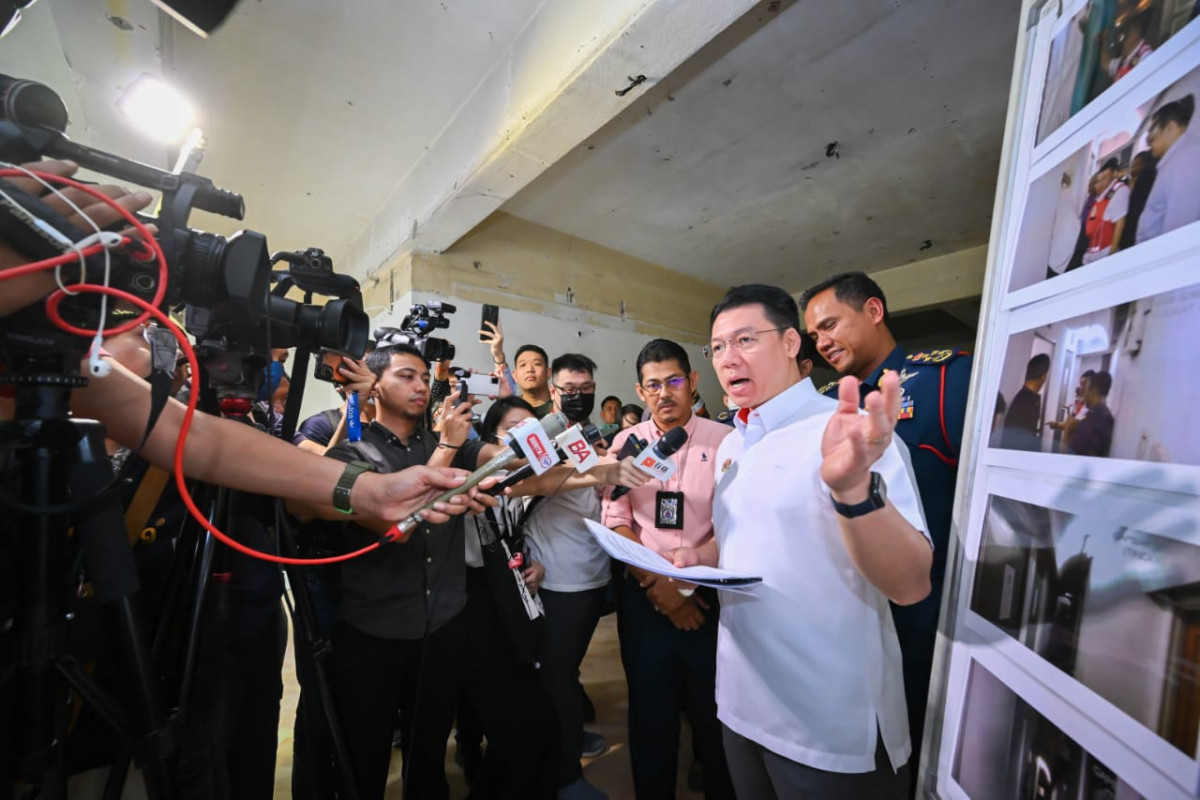Urban Renewal Implementation Guidelines: How will owners’ rights be protected?

- In addressing concerns regarding property owners’ interests, KPKT has outlined some points to be adhered to in the process of urban renewal.
KUALA LUMPUR (Jan 22): The Urban Renewal Implementation Guidelines (GPP PSB), launched by the Housing and Local Government Ministry (KPKT) in September last year is seen as a precursor to the Urban Renewal Act, which is expected to be tabled this year.
As highlighted by KPKT minister Nga Kor Ming (pictured) during the launch, GPP PSB aims to address variations in the governance of urban renewal among states and local authorities, where a uniform practice is lacking nationwide.
Thus, GPP PSB serves as guidelines and reference for federal government, state and local authorities, developers and other stakeholders to redevelop decrepit townships and enhance the urban image, design and quality of life for urban communities.
KPKT, in an earlier press release, stated that the ministry is confident that GPP PSB can be the main guide to facilitate the urban renewal process and boost urban development across the country.
However, some quarters have raised concerns about the Urban Renewal Act, questioning if the interests of the original dwellers of the sites would be protected.
Based on KPKT’s documents on GPP PSB, these points appear to address these concerns.
(Read also: Urban Renewal Act: Is KPKT biting more than it can chew?)
Focused on two types of urban renewal
Although GPP PSB touches on four types of urban renewal terminologies (Urban Redevelopment, Urban Regeneration, Urban Revitalisation and Urban Conservation), the guidelines only focus on the first two.
The method of Urban Revitalisation is left flexible for local authorities to coordinate the respective approval processes based on their own standard operating procedures. The same goes for Urban Conservation, which is to allow flexibility in preservation through the Special Area Plan (RKK) or Conservation Management Plan.
Additionally, GPP PSB focuses only on land parcels that have undergone development (excluding vacant lands). In line with this, the guidelines propose three types of mechanisms for urban renewal implementation – urban renewal on reserved land, freehold land and strata title land (individual, company, statutory body, or local authority), and on land owned by the Federal Land Commissioner (PTP) – in an effort to overcome issues hindering the urban renewal process.
Among the principles of urban renewal that are highlighted in GPP PSB are:
1. Owner’s approval – To obtain approval of strata property owners or landowners, a hybrid approach (owner’s consent and land acquisition) as per the current legislation will be used.
2. Retention of original residents – The original residents in the area are to be maintained via a replacement ownership of a new house unit (one to one) for free in a higher-quality redevelopment project, or will be offered fair compensation. Alternatively, they are eligible for consideration in the new redevelopment scheme or may be offered suitable compensation.
3. Development in phases – For in-situ development on a large site, a portion of the area will be developed first, allowing the original residents to stay on another part until the new development is complete, and they can then move into the new development.
4. Owners’ interests are protected – The developer is to employ a comprehensive mitigation plan to ensure the well-being of owners and no loss of income throughout the development process until the project is completed.
5. Conducive temporary placement – The developer must ensure that temporary placements are within a suitable distance and cover the rental costs for the owners until the project is completed.
Impact on property owners
KPKT states that the result of Urban Redevelopment and Urban Regeneration will benefit the rakyat and homeowners, including an improved quality of life, more job opportunities and a conducive environment and lifestyle.
However, instead of requiring 100% consent for en-bloc sales, KPKT is proposing a 75% consent threshold to streamline the urban renewal process. This reduced threshold will affect strata property owners who oppose the urban redevelopment scheme once the new Urban Renewal Act is approved.
To know more about GPP PSB, you can download it from the PLANMalaysia (Town and Country Planning Department) website.
Looking to buy a home? Sign up for EdgeProp START and get exclusive rewards and vouchers for ANY home purchase in Malaysia (primary or subsale)!
Never miss out
Sign up to get breaking news, unique insights, event invites and more from EdgeProp.
Latest publications
Malaysia's Most
Loved Property App
The only property app you need. More than 200,000 sale/rent listings and daily property news.
